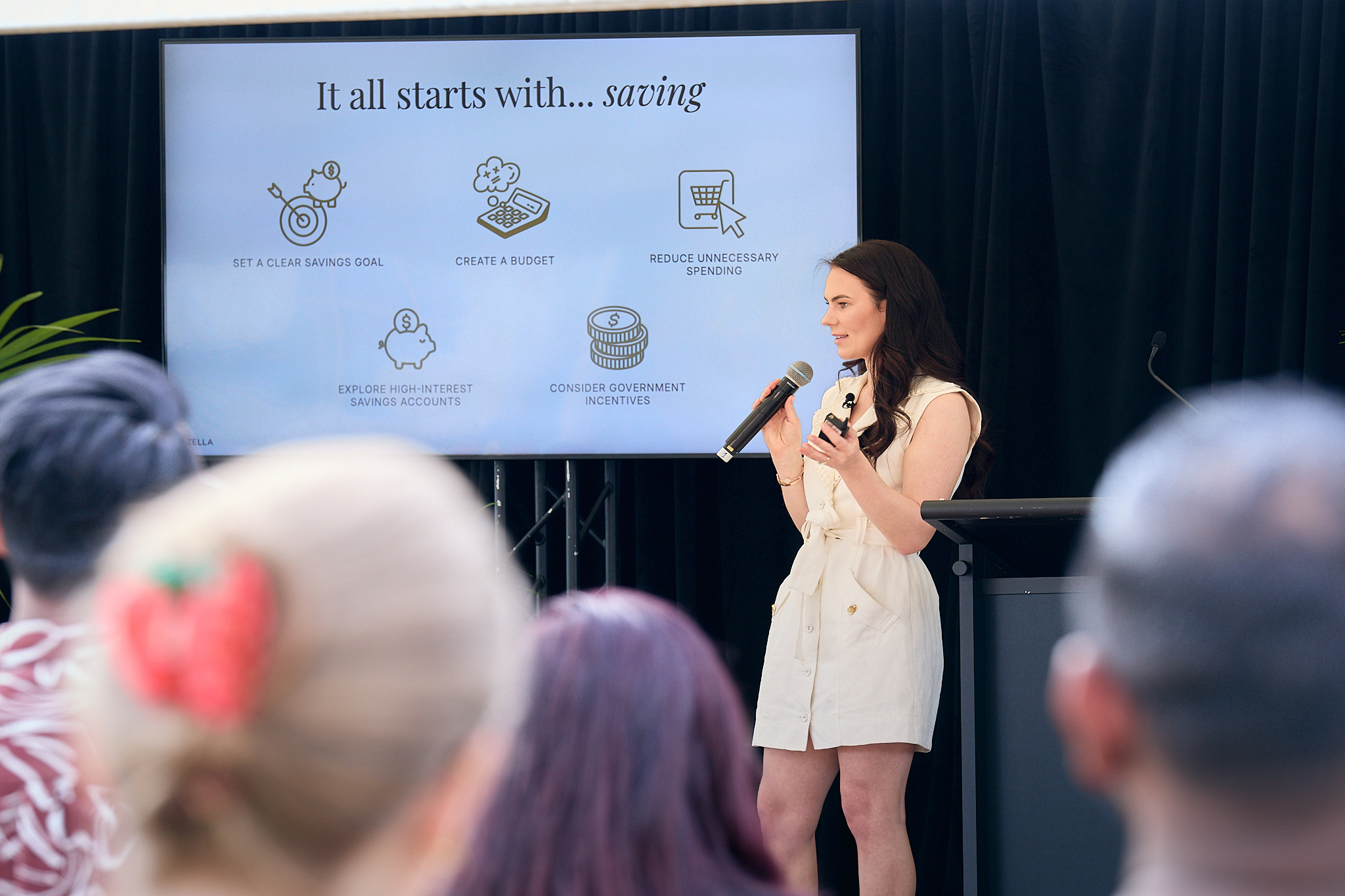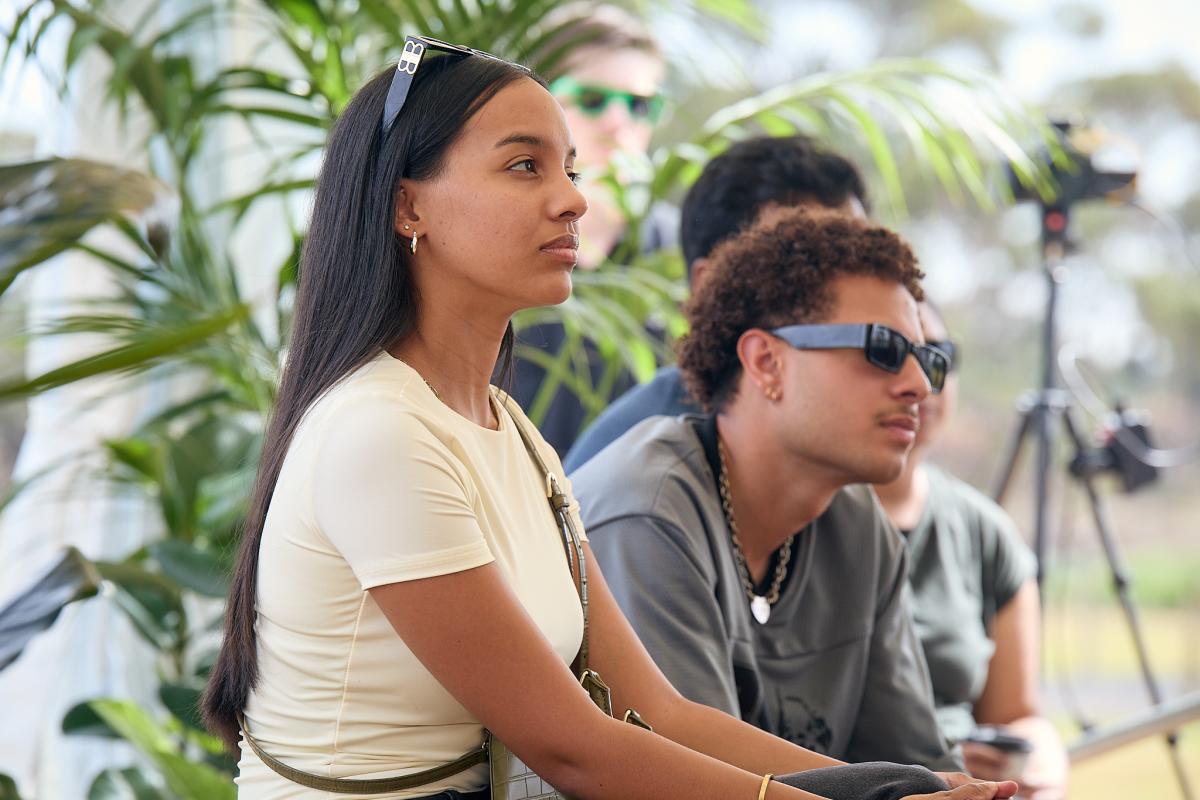Home Buyer Head Start Series: Getting the keys to your first home with Victoria Devine

"You cannot purchase a home if you don't have your finances in order".
Victoria Devine, host of “She’s on the Money” podcast, author and former financial advisor.
Victoria Devine and Kade Rawlings from Soho Living, shared insights and practicalities of the buying process that can make a significant difference for first-time buyers.
Whether you're starting your journey or actively looking at homes, here are some things to keep in mind that will make the process easier and less stressful.
Please note that everyone’s circumstances are different, and this should not be used as individual financial advice, it’s general information only.
Key Takeaways
- Budgeting is essential: Before thinking about buying a home, it's crucial to have a solid budget. Spending less than you earn is the foundation of saving for a deposit and securing a mortgage. Create a realistic plan for your finances to avoid overcommitting to a mortgage that could become unmanageable in the long term.
- Don’t assume you need a large deposit: Many first-time buyers believe they need a full 20% deposit. This isn’t always the case. It’s possible to buy a home a deposit as low as 2%, especially if you qualify for government schemes. Check with a mortgage broker to see what options you have.
- House and land packages can offer price certainty: These packages combine land and home costs into one clear price. It’s a great way to plan for your new home without worrying about hidden fees like landscaping, driveways, or additional building costs. Sales consultants for either the land developer or the builder will be able to give you more information about the packages available where you’d like to purchase.
- Engage with a mortgage broker early: Mortgage brokers have access to multiple lenders and can help you find the best loan deals, potentially saving you thousands. They’re also great at helping you understand the various grants and schemes available to first-time home buyers.
Montana, a Wyndham local attended the event with her partner, Kurt, said “Our first session was incredibly informative, and we truly appreciated hearing from Victoria."
“As my partner and I embark on this journey, we’ve gained valuable insights we hadn’t considered before. The display homes were stunning and have given us great inspiration for our future home build. Thank you!”

The Basics of Home Buying
Creating a budget is your first step before diving into the excitement of choosing a home. It’s easy to get swept up in the dream of owning a home, but if your finances aren’t in order, it will be difficult to secure a loan.
If you’re serious about purchasing a home, getting your finances in order and having a good grasp on how much you can comfortably spend each month is essential.
You also need to think longer term too. Do you expect your financial circumstances to change in the next 1, 5 or more years?
How would these changes affect your ability to pay your mortgage?
A mortgage is often the biggest financial commitment of your life. By planning ahead, you can avoid financial strain down the road.
What to Know About Deposits
A common misconception many first-time homebuyers have is that you need to save up a 20% deposit to buy a home. This isn’t always the case.
More often than not, first-time buyers are able to secure homes with as little as a 5–10% deposit. In fact, some buyers can get into homes with just a 2% deposit if they qualify for specific government grants and schemes.
Don’t stress about needing a huge deposit. The key is to work with a mortgage broker who can guide you through the options available. There are many government incentives designed to help first-time buyers, and a good broker will help you navigate these opportunities.
The Benefits of House and Land Packages
For many first-time buyers, a house and land package is an attractive option. These packages combine both the land and home, with the certainty of a fixed price. It’s a great way to get a clear understanding of your costs upfront, without worrying about hidden fees.
The package price often includes not only the land but also the costs associated with the build, like site preparation, developer requirements, and other essential fees. However, some packages don’t and costs can add up.
House designs in the package may not be fixed and many can be adapted to suit your living arrangements for a cost.
Factor in build time, permits and settlement when considering a new build. It’s likely to be 6 months to build a single-storey home or 9 months for double-storey with an additional 2–3 months from land settlement to construction start (permits, approvals). Sales consultants for builders can outline the likely timeframe and other factors that may speed up or delay the overall process.
If you’re considering the house and land option, make sure you understand everything included in the package. Ask questions, get clear answers you feel comfortable with and understand, then review any paperwork.
The advice, opinions and insights of this article are general in nature. This article does not take into account your personal financial circumstances or objectives and may not always be entirely accurate, complete or current. We recommend speaking to a financial advisor or mortgage broker before making any financing decisions with respect to your existing home loan or any new home loan.
